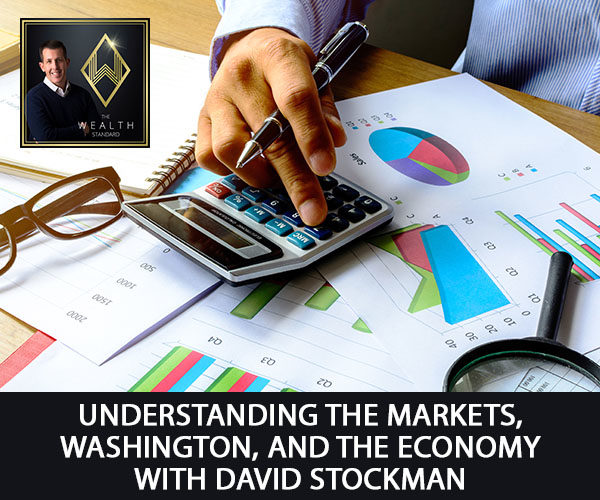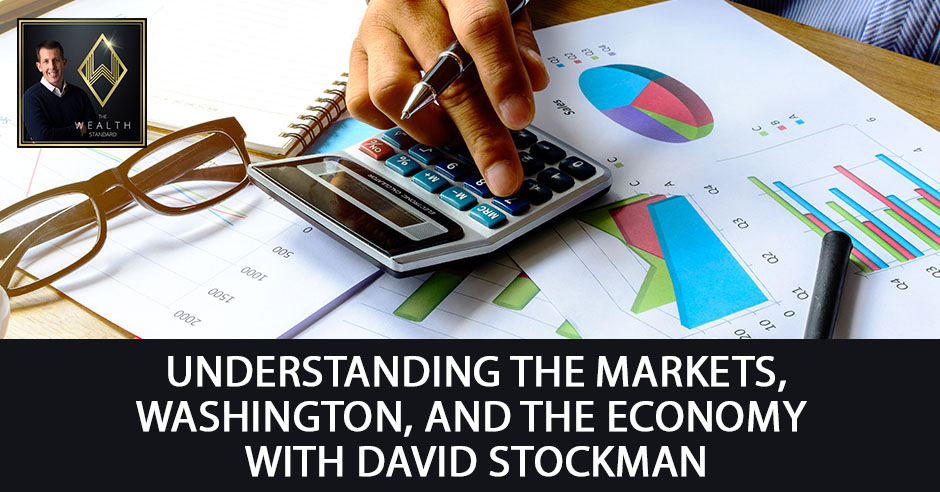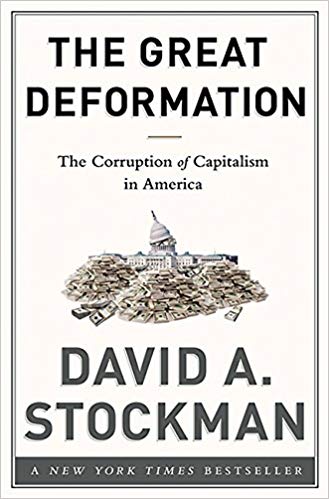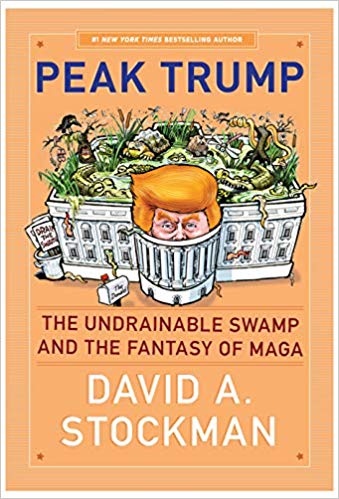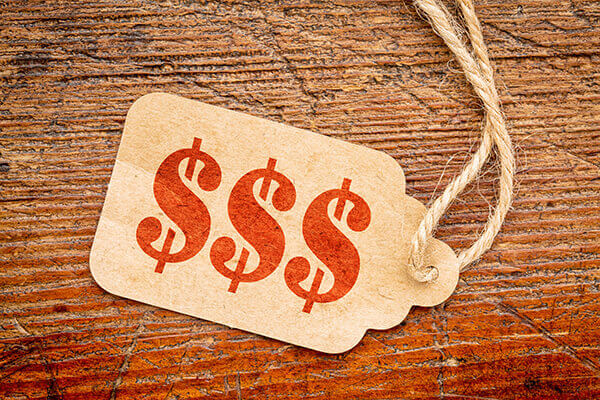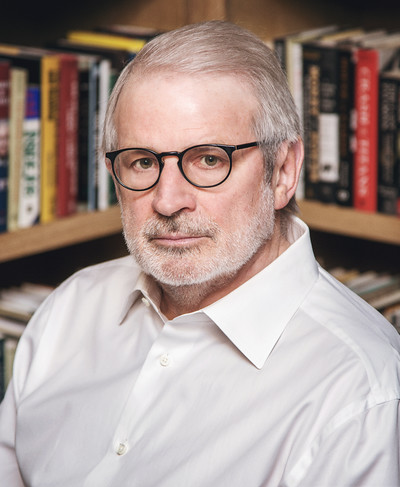The New Great Depression: What Happens In A Post-Pandemic World With James Rickards
Podcast: Play in new window | Download
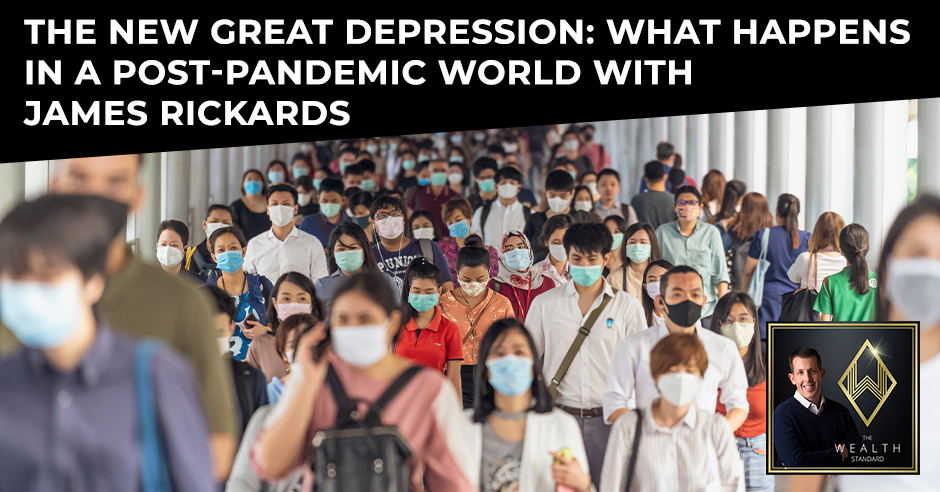
2020 will forever live in history books as the COVID-19 year. More than the health crisis, it has brought on an economic crisis that will greatly impact the future. What did people do to survive it? What lessons can we learn from those who did that will help us face the challenges that are to come? Patrick Donohoe has someone with the answers. In this episode, he sits down with none other than James Rickards—an American lawyer, economist, investment banker, speaker, media commentator, and author on matters of finance and precious metals. He brings with him his book, The New Great Depression: Winners and Losers in a Post-Pandemic World, to share what you can do to not only survive but also thrive during these uncertain times. From predicting this economic chaos in his 2019 book, James is now pointing us towards the future, telling us about the things to anticipate this 2021 and what we can do to get through it and prosper.
—
Watch the episode here:
Listen to the podcast here:
The New Great Depression: What Happens In A Post-Pandemic World With James Rickards
Thank you for reading this episode. You are going to enjoy this one. I’m glad you’re here. I’m glad that you had dedicated time to inform yourself, becoming more aware of what’s going on and subsequently prepare yourself for a strategic response as opposed to an insane emotional reaction, which seems to be the rule these days. Hopefully, you find yourself in the group of exceptions. My guest is Jim Rickards. Jim has written a number of books. He’s held some internal roles with the government. He has worked with the CIA, has worked with central banks. He’s worked as a consultant in other areas as well. He’s had a front-row seat for several decades to be able to speak intelligently about monetary policy, fiscal policy and what’s going on, not just in the US economy but also the global economy.
His books include Currency Wars, The Road to Ruin, The Big Drop, The New Case for Gold. Aftermath is his other one. He has a brand new one called The New Great Depression. Not the rosiest of titles but at the same time, sometimes we need to be smacked a little bit in the face in order to become aware of something that was already there. Jim is a great guy. He spoke at our Cashflow Wealth Summit a few years ago, and he has some interesting things to say. We get into a lot of that and give a preview of his new book if you can go to JamesRickardsProject.com. You can also go to Amazon and purchase all of his books. We operate our lives in an economy and environment that is already established and being aware of it allows you to position yourself to respond to circumstances, respond to experiences strategically, as opposed to what has become the rule, which is to emotionally react.
I understand and I can sympathize to an extent. It has been a challenge and that challenge is not going to go away. That’s part of life. It’s a little bit more extreme now but I look at what’s occurred in 2020 and what that has done to create some ripples into what’s going to happen in 2021 and beyond. The world has changed. From a psychological perspective, from an environmental perspective, your awareness is going to allow you to show up. Show up to be successful, show up to make wise investments and overall show up to live a more meaningful life. I hope you enjoy this episode. Jim’s website is JamesRickardsProject.com. You can also go to Amazon where all of his books are available and I believe he has all of them on Audible as well for you, audiobook listeners. Thank you for joining. I appreciate the support. Now, onto my interview with Mr. Jim Rickards.
—
Jim, thanks for joining me. It’s a pleasure. I have spoken extensively about your books. I went up and found a couple of books that you’ve written in the past. I don’t have all of them here. A couple of them were at home but you have a new book that’s coming out and it is timely because it relates to COVID-19 and what impact that has made on the economy. We’re seeing some impact right now but also there’s a lot more to come. I’m excited to talk to you about your new book. Congratulations.
Thank you, Patrick. It’s great to be with you and thanks for showing the other books. The great thing about having a new book is that a lot of people, if they haven’t read my books before, they like it or they’re interested, they’ll go back and look at the old books and that’s helpful too. Those are all still timely. The book is called The New Great Depression: Winners and Losers in a Post-Pandemic World. It’s available on Amazon, Barnes & Noble and bookstores. It’s doing well. It’s interesting, even in pre-order on Amazon, we’re the number one ranked book on money and monetary policy, the number one ranked hardcover in economic policy and the number one ranked hardcover in wealth management. Those are the three categories or buckets that Amazon puts me in. We’re number one in all of those number one hardcover, number one new release. We’ll see how it goes but we’re off to a good start. The book is generating a lot of interest.
That’s a great tailwind going into a new year. The timeliness of the election and potentially new president and new makeup of Congress. There’s going to be a lot going on. I know you’ve spoken to monetary policy in the past in all of your books but you do it in a way that is understandable. I’m hoping for those new readers, they’ll also go back and look at what you have written in the past. Also, it was your book before this one, Aftermath, where you actually talked a little bit about the potential pandemic and how that could be one of those tipping points to create some chaos in the economy.
Not just the economy but also riots in the streets. You’re right, that was my last book, Aftermath. Thank you for mentioning it. It came out in July 2019 but if the readers have it or you’ll get a copy of it, turn to page 290 and right there it says, “The odds of a pandemic in the next several years are 100%.” The way I put it, the odds of not having a pandemic are close to zero, meaning there’s going to be a pandemic. That will be followed by armed militias and riots in the streets. There’s nothing that’s happened in 2020 that you should have been surprised by if you had read that book in 2019. Now the question with the new book, The New Great Depression, we’re taking it forward, talking about what’s going to happen in 2021 and 2022. We’ll prepare you for what’s coming, which is what I aim for in all my books.
We're not getting back to normal; we'll get through it. Life will go on, but it will not be the same. Click To TweetLet’s speak to that. Is this a continuation of some of the previous books that you’ve written or is this something that speaks to what’s going on based on COVID-19?
It’s surely both. Pandemics don’t come along every day, certainly not of this magnitude. It’s interesting. There was one of the studies I cited in the book and I tease people. I say Amazon or Barnes & Noble has a certain price then that’s fine. The more books they sell, they lower the price. You’d think they’d do the opposite but the price gets lower, which is a good sign in terms of sales. One of the things I mentioned to people is that the pandemic didn’t cause the depression. The pandemic is a pandemic. The virus caused the pandemic. It was the policy response that caused the pandemic because you didn’t have to make all the choices we made. There was one study I cited in the book and I tell people it’s worth the price to get the endnotes.
I hope you love the book and I enjoyed writing it. In the end, those are a valuable source of primary material for people who want to look a little bit deeper. There was a paper prepared by the economists of the Federal Reserve Bank of San Francisco. Two academics flew there from the University of California, one of the top schools and some collaborators, and they had a 650-year time series. That’s my time series. A lot of people will do a one-year, two-year time series, do the correlations and regressions. I consider that junk science because 1 or 2 years is not long enough to identify trends. With 650 years, now you’re talking. They went back to the Black Death in 1350 and they look at every pandemic beginning with the Black Death in which 200,000 or more people died.
There were only fifteen. I guess fifteen is a lot but they identified fifteen that met those criteria. The two biggest of course were the Black Death, in which about 75 million people died and the Spanish Flu of 1918 in which about 100 million people died according to the best estimates. After that, there were two with about two million fatalities and then it drops off. They were looking at 100,000 or more, there were fifteen pandemics that made the list. COVID is going to end up being number three. Right now, it’s about 1.8 million fatalities but it’s nowhere near over. It’s going to go past two million. It’s going to be the third greatest, third-most fatal lethal plague pandemic in 650 years. That’s how bad this is and what they show is that, because they were economists but they had the pandemic data, they said, “When did the economy get back to ‘normal?’” We’re not getting back to normal. We’ll get through it.
Life will go on but it will not be the same. When did interest rates, employment rates, output things normalize after the pandemic? The answer is it took 30 to 40 years, not 30 weeks. It’s not 30 months but 30 years. When I hear J Powell say, “We think interest rates are going to be zero until 2023,” I’m like, “Fine, J. Why don’t you try 2043 because that’s more like it?” The effects of this will be intergenerational. As an example, I grew up in the 1950s, early ‘60s, which was a very prosperous time in the US economy. I did not live through The Great Depression but my parents did and my grandparents did.
I was raised with a Depression mentality, even though I didn’t live through the Depression. We used to go out as nine-year-olds with our wagons and go door-to-door and collect tin cans and newspapers. We weren’t doing it for environmental reasons. Maybe it was good for that but we were recycling. There was steel in that tin. You could melt it down and make battleships and airplanes. We had that mentality. That didn’t change until the late 1960s when the Baby Boomers came of age. It was like party, rock and roll, credit card, spend. Things changed but the Depression mentality, the adaptive behavior, lasted through the ‘50s and ‘60s. That lasted for 30 years, which is exactly what these economists have demonstrated using other examples.
I make the same point. I have a number of grandchildren. While they get ready for school in the morning, the mother says, “Put on your hat, your coat and put on your mask.” They put a mask on because they’re very adaptable but that is going to have a lifetime impact. You’re going to remember, “When I was a little kid, I wore masks to school because there were germs in the air.” It affects everything you do for the rest of your life. The effects will be intergenerational. They’ll last for decades, not years. Another example, in 1929, the stock market crash. A lot of people know that was the start of The Great Depression. The stock market went down 89.2%, almost 90% between 1929 to 1932.
You ask me, “When did it get back to normal? When did the stock market get back to where it was before the crash?” The answer is 1954. It took 25 years to get back to where it was. It doesn’t mean you couldn’t make money in the meantime. If you bought the bottom in 1932, you could have made a lot of money in 1933 and some people did, but the point is it didn’t recover. It’s all high for 25 years. A lot of people around 1929 were dead by then. Don’t believe in the V-shape recovery. Don’t believe it when you hear about pent up demand. None of that is true. It’s going to be a long, slow recovery. We’re probably in another recession right now. We’re probably in a double-dip recession. We had a recession from the first and second quarter of 2020. We’re probably in another recession after a partial recovery in the third and fourth quarter. That’s the world we’re living in.
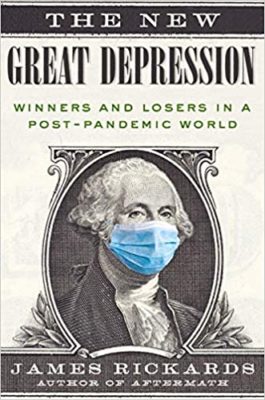
The New Great Depression: Winners and Losers in a Post-Pandemic World
The 650 years of history is incredible. Was there a trend where the recovery sped up because now, arguably, we have a different way in which society operates? From a communication standpoint, from an innovation standpoint, is that going to have an impact on the potential? I agree, we’re not going to recover to where we were, but is there going to be a speedier rebound than there has been in the past?
I doubt it. There’s a good book on the subject by professor and author, Robert Gordon. It’s like a 700-page book. It’s a doorstop but I read the whole thing and a lot of others have as well. He makes the point that the greatest period of productivity in US history, roughly 1870 to 1940 and then the continuation of that as late as 1970 so about 100 years. This was the age of the light bulb, the phonograph movies, airplanes, etc. That transformed things. For 5,000 years of civilization, prior to 1870, what did women do? Women or 50% of the population spent 75% of their time hauling water. We had to get it from a well, a stream, a lake, a pond or someplace and you hold the water in. You used it for cooking, bathing, cleaning, boiling and lots of other things. Half the population spent three-quarters of their time hauling water.
1870 was when indoor plumbing began. It took 70 years to network everything. There’s a network for you. The plumbing network is way more powerful than the internet when it came to the impact in terms of productivity. All of a sudden, half the workforce with a lot of brainpower, women specifically, didn’t have to haul water. They could do a million other things and they did. In the last few years, productivity has been declining. Everyone’s like, “Look at all this technology. We’re going to be more productive than ever.” It’s not true. It doesn’t show up in the numbers. Why is that? I talked to one guy who is a guru of technology and he said, “We have a lot of technology but we’re using it to waste time.”
How much online shopping do we need? How many emails do you answer where you’re being polite but it’s not exactly what I was planning to do? I’m not necessarily talking about playing video games. That’s an even bigger waste of time. There’s some evidence that all the technology that we’re connected and we’re networked, sure but we’re not using it for productive purposes. That may be dragging down productivity. That’s the best case. The worst case is that because of lockdowns and shutdowns and the failure of small businesses and unemployment going up, it’s not the unemployment rate. Remember, it’s the labor force participation.
There are over ten million able-bodied Americans between the ages of 25 and 54 who are not working but they’re not counted as unemployed because they’re not looking for a job. They’re not in the labor force. That was always a good reason for some people not to be in the labor force. You could be a student, you could be a spouse with three kids at home and that’s your job so to speak but not to that extent, not that number. If you add that group, able-bodied, working-age Americans not looking for a job, add them to the unemployed, the unemployment rate is more like 15%, not 7% or 8%. That’s the reality.
Look at the impact. You’re alluding a lot to the psychological impact of previous pandemics where lots of people died and it was a big scare. Even in 1929 with stock market fallout and very tough economic times, it impacts psychology long-term and it takes a while to get out of that. As I reflect on 2020, we were, in essence, forced into behaving a certain way whether it was staying home, wearing masks, not being near people, not being in an office. Fear sometimes solidifies in people an understanding of how things are. It’s not going to go away anytime soon. You’re right. From collective psychology, you’ve had so much distraction where even though there was a lot of fear and people were home, they were distracted by entertainment, Netflix, games, etc.
That does not lead to productivity and solutions. It’s interesting. What are some of the primary ways in which our global society has been impacted in this psychological way that won’t necessarily come back? You and I were talking before we started about the commercial real estate market. That people aren’t going to go back to work and be willing to work in an office the same way they’ve done in the past, which is going to impact prices. Where do you see some of those primary areas that are going to be impacted long-term?
First of all, you’re right about the mental health and behavioral aspects of this. I have an entire chapter on that in my book, The New Great Depression. Chapter Five talks about the mental health aspects. Normally, when you start writing a book, you start with your research and then you build your outline and then you write the book but this is the first book that connects the pandemic and the Depression. There weren’t any other books I can pick up. Here’s another book on this. This is the first book that tackles the subject. To form a baseline, I went back to the Spanish Flu of 1918, which there were five or more excellent books on that.
Lockdowns don't work. They do not stop the spread of the virus, and they kill more people than they save. Click To TweetInterestingly, they’ve mostly been written in the last twenty years. You would think that people in the 1930s and 1940s would have been writing about this, they weren’t. It was almost as if there was general amnesia about it or people didn’t want to talk about it. It was probably too horrific with 100 million dead. Now scholars and journalists have tackled this and there were some good books on that. In looking at that, I realized that one of the great under-reported, underestimated aspects of it were the mental health aspects of this. I make the point that the lockdowns, first of all, lockdowns don’t work. They do not stop the spread of the virus and they kill more people than they save. In theory, you could find some people who were saved arguably but they kill a lot more people.
Here’s why. Suicide rates have tripled, drug abuse, alcohol abuse, domestic abuse. The mental effects, the psychological effects of the lockdown are anger, depression, anxiety. Sometimes it manifests itself in violence. When I look at the summer of 2020, Antifa and other groups burning down US cities, Kenosha, Seattle, we all know the stories. We saw it on the news and supposedly all that related to George Floyd. George Floyd might have been a catalyst. At least some of it was this pent-up depression and anxiety that came out and manifested itself in this violence. We’re saying it now that violence has broken out on Capitol Hill, the demonstration, turned into an assault. I see breaking news and I see somebody was shot.
They got the vice president out of there and took him to another location. Violence is bad. Property destruction is bad. I’m not condoning any of it, period. The fact that it’s happening comes as no surprise because it is one of the effects of everything we’re talking about. That’ll stay with us. That was the point I was making, which is we won’t get back to normal. It will be a new normal. As far as investment decisions are concerned, one of the anecdotes I tell in the book and this is in chapter five going into chapter six. A lot of the readers will be familiar with the Weimar Republic Hyperinflation in Germany in the early 1920s. That story is well-known but there was an individual, his name was Hugo Stinnes, and he saw it coming and he took out massive loans.
He borrowed a ton of Reichsmarks, which was the currency and invested in hard assets. He bought coals, steel, railroads, shipping lines, transportation, etc. Hyperinflation came. He paid back his loans, I would say pennies on the dollar but it was like thousands of a penny on the dollar. Basically, it was worthless but technically he paid back the loans in worthless Reichsmarks and he kept the assets. He became the richest man in Germany. I don’t speak German but his name in German was the Inflationskonig, which means the Inflation King. I tell that story to make a point, which is that even in the most horrific hyperinflation devaluation in the history of developed industrial economies, one guy became the richest man in Germany because he saw it coming and made the right moves.
Joseph P. Kennedy was another one. Joseph P. Kennedy, what did he do in the 1920s? They got together in a gang with big Mike Meehan and a few others. They ramped the stocks. They bid them up and then all the suckers came in and bought them. They dumped them on the suckers and walked away with all the profits until October 1929. He could see the crash coming and he’s short of the stock market and made another fortune in the early ‘30s. He was one of the richest people in America. One guy becomes the richest guy in Germany in horrific hyperinflation and Kennedy becomes one of the richest people in America during the greatest stock market crash in history. My point is that even in adverse markets, even in disaster scenarios, if you have the right analysis and you can anticipate the move, then you can at a minimum, preserve wealth and possibly even prosper enormously.
I look into 2020 being one of the highest retail sales in history, yet you had a lot of those in-person retailers go bankrupt. There have been entrepreneurs who have bought those and bought branding and use the internet and have crushed it. There’s always an opportunity. The environment is always going to change, maybe not to these extremes but now we’re in it where there’s no going back. Now it’s having the right mindset and mentality to look for those opportunities. Where else do you see things changing? I heard a statistic too, which is one of those unintended consequences because when you locked down these Western countries, even Europe and Asia, you inhibit travel, you inhibit tourism, which economies around the world rely on. Those aren’t probably going to come back for a long time and people are dying of starvation, let alone mental illness-wise. Where else do you see these cloggings of the economy that you write about in your book that is going to have an impact eventually? They may not seem that dire but the wheels were in motion so that there are going to be some dire end results.
That’s why the subtitle of the book, The New Great Depression: Winners and Losers in a Post-Pandemic World. We have both. We know who a lot of the losers are, air transportation, cruise ships, resorts, gambling casinos and a lot of others. We moved and bought a new TV set for our new apartment. I was in Best Buy. I was talking up to the salesman. I said, “How’s business?” He goes, “Never better because everyone’s staying homes. They’re buying TVs, stereos, DVD players, whatever.” I said, “That makes sense.” They’re one of the winners. The airline industry is a good example because it was originally down 80% to 90%. It’s come back a little bit but nowhere near all the way.

The New Great Depression: In 2020, we were, in essence, forced into behaving a certain way.
It’s still down over 50% from where it was this time in 2020. The bigger question is will it ever come back? This is where the doubt of behavior comes in. Once people get used to working from home using Zoom or maybe the airlines say, “We’ve got plans. We’re back to our normal schedule,” nobody wants to go anywhere because they’re still worried about the virus. The pandemic is far from done, by the way. We’re not even out of the pandemic stage. In fact, it’s getting worse. The caseload and the fatalities and the hospital utilization right now are worse than they were last March and April 2020. Obviously, things were pretty bad but some of these things may never come back. Even if restaurants reopened, they made it this far or people racing to go out to dinner.
I like going out, I’m not sure most people are. A lot of people are afraid. They’ve been scared. They’d been lied to by government officials and others who don’t know what they’re talking about. By the way, I tell people, whenever anyone wags a finger at you and says, “Follow the science or the science is settled,” they don’t know anything about science. If you know anything about science, you know that science has never settled. Einstein didn’t think Newton had the last word, and Neils Bohr didn’t think Einstein had the last word and they’re still debating it. That’s okay. That’s what good science is. The idea that there’s some science standard out there and can pull it off the shelf and wave it at somebody and tell them what to do, it’s not true.
The politicians go through the motions and it does have, as I say, very disastrous consequences. Commercial real estate is a disaster. It will stay that way for a while. I wouldn’t touch it until maybe 2022, maybe later at the earliest. We’re depopulating the cities. The cities are the greatest wealth-creating mechanisms in the history of civilization. What is the city? You bring together all this diverse talent. You’ve got bankers, lawyers, accountants, engineers, artists, writers, dancers and everyday people with all different backgrounds. You bring them all together and then the ideas start flowing. As I say, they’re these incredible wealth creation machines. The cities are depopulating. We’re seeing an exodus as we’d never seen before. Where are they leaving? They’re leaving New York, Los Angeles, San Francisco, Portland, Seattle, Chicago, Baltimore, Philadelphia and a few other cities.
Where are they going? They’re going to Miami, Austin, Boise, Nashville, Phoenix, Scottsdale, etc. We know where the flow is. Talk a little bit more about residential real estate instead of commercial real estate. Residential real estate is collapsing in places like New York and Los Angeles but it’s booming in Miami and Nashville. I’m up here in New Hampshire. We have no income tax, no sales tax. That’s a little bit hard to beat but people like the weather. I like cold weather but if I feel like warm weather, I go to Florida, Texas. The fastest-growing city in the United States is Nashville because Tennessee has no income tax. You could do well in residential real estate in the places people are moving to. Commercial real estate is bad across the board. Let’s say, for example, you had ten floors, you’re a big company.
You have ten floors in a prime office building in Midtown Manhattan or any other major city. Companies would never have voluntarily adopted the work-from-home model but they had to do it. They had no choice because of the pandemic. What they discovered is that it works, and it works well. I like socializing with people but everyone did what they had to do. It’s not that the company is necessarily going to pull out but they’ll go from 10 floors to 2 floors and they’ll say, “We’ll have a locker room. It will be a nice one. It won’t be like a high school locker room but every employee will have a locker to keep your laptop, sport coat and tie or scarf or whatever you’ve got in there. It will be nice offices that you’ll reserve in advance like a hotel room.
You’ll say, “I need two days next week because I have some out-of-town clients coming in.” You’ll show up, go to your locker, grab your laptop, your sport coat, sit down, have the meetings and then go back and work from home. You go from 10 floors to 2 floors in my example. The landlord takes it on the chin, but what about the maintenance people, the cleaning people, reception, the food trucks, the restaurants, the bars, the shopping, the lunchtime shopping, public transportation, that whole ancillary cloud around the fact that you’ve cut your office space capacity by 80%? That all goes down 80%. The ripple effects of this are huge.
It impacts all those derivatives.
I like residential real estate in places people are moving to. I don’t like commercial real estate at all for the reasons we mentioned. I always recommend gold for about 10% of your portfolio. People want to put words in your mouth like, “Jim Rickards sells everything and buy gold.” I’ve never said that. I don’t believe that. A 10% allocation is about right. I recommend a big allocation to cash, about 30%. That surprises people like, “Why would I want cash? It has no yield.” A couple of things. Number one, deflation is a greater danger than inflation right now. In deflation, cash could be your best performing asset because it has no yield. If you have 2% deflation, the real value of your cash went up 2% because your purchasing power is greater. Number two, cash is the opposite of leverage. Leverage increases volatility. That’s good if you’re making money but it’s horrible if you’re losing money.
Leverage increases volatility. Click To TweetCash is the opposite. You can have volatile assets over here, gold or fine art or whatever and volatile assets over here, stocks and bonds. That’s crazy enough. If you have cash, it reduces the overall portfolio. Volatility helps you to sleep at night but this is the third benefit to cash. It has embedded optionality. You can be nimble. Right now, visibility is not great but it will improve over time. You could throw your money into a private equity fund or venture capital hedge fund or something right now. I’m not saying that’s a horrible decision but what you can’t do is get it out. Try getting your money back from Henry Kravis before seven years, you can’t do it. You’ve got to cross the bit off or pay extra fees or maybe you can’t do it at all.
If you’re the person with cash, visibility improves, you can pivot into whatever might be a lot more attractive based on some later information. That’s valuable in and of itself. Gold, cash, residential real estate, ten-year treasury notes will do well. Trade yield to maturity is probably going negative. That has nothing to do with the fed funds policy rate. I don’t think the Fed will go negative on the policy rate but ten-year notes, the yield to maturity is set in secondary market training. You get principal and interest back. You know what that is but if I’m selling a ten-year note, the minute somebody buys it from me and pays a premium that’s greater than the coupon and the principal, they have a negative yield to maturity. They’re not going to get all their money back. They’re going to get the principal and interest but they paid more than that. They’re not going to get all their money back.
Why would you do that? Two reasons. One, you might think you could sell it to somebody else. Maybe you can. Two, if you’re a European investor, you could lose money on the other maturity but make it on the currency because the dollar could get stronger against the Euro. In Euros, you would have more profit that way. It’s not as crazy as it sounds. Ten-year German government bonds and Japanese government bonds have negative yields. The US isn’t there yet. Now we’re about 95 basis points on a ten-year note, take down to negative 50, it’s going to produce huge capital gains on your ten-year note.
Do you think that’s where we’re going?
I do.
The monetary policy, that was a question that I had because it seems that’s going to be the general response as the economy sputters along into this post-COVID world. Now you have Janet Yellen most likely go in as Treasury Secretary. Do you see monetary policy changing? Where do you see it going? Do you speak to that in the book?
I do. In chapter four, I talked about what monetary policy will be, what fiscal policy will be and why neither one of them will work. Don’t call us stimulus. You can print money and you can have deficit spending but it will not stimulate the economy. It won’t work. There’s a reason for that. Let me be very specific. The Fed’s balance sheet was about $3.6 trillion at the start of the pandemic. Now it’s around $7.5 trillion. They’ve printed $3 trillion of money. That’s real money. They did print it. They did give it to the banks but money does not cause inflation. Money does not stimulate the economy. Milton Friedman was wrong about that. The Austrians, the Neo-Keynesians, they were all incorrect. It’s spending. It’s the turnover.

The New Great Depression: If you have the right analysis and you can anticipate the move, then you can, at a minimum, preserve wealth and possibly even prosper enormously.
Velocity is the technical term. The Fed prints the money by buying treasury notes from dealers. They take the treasury notes, put them on the balance sheet and give the money to the dealers. What do the dealers do with the money? They give it back to the fed as excess reserves. It sits down on the balance sheet. I tell people, “Nominal GDP equals money supply times velocity.” What’re $7 trillion times zero? It’s zero. Meaning if you don’t have velocity, you don’t have an economy. That’s the problem. Velocity has been declining for many years, by the way. It started in 1998. Money printing can be done.
My friend, Stephanie Kelton, she’s the big brain behind Modern Monetary Theory. She was Bernie Sander’s economic advisor. She’s a big voice in the Biden administration. They may take their balance sheet to $10 trillion. I wouldn’t rule that out but it won’t work because there’s no turnover. When you get to fiscal policy, the same problem. The Keynesian multiplier. I borrow $1, I spend $1 and I get $1.25 of GDP because of turnover. That’s the Keynesian multiplier but the evidence is now in. This is Ken Rogoff, a professor at Harvard and Carmen Reinhart, who was at Harvard, now chief economist of the World Bank and their collaborators. They’ve shown very convincingly that Keynesian multiplier does exist in different measures up until around a 90% debt to GDP ratio. Take the total debt divided by GDP. That’s your debt to GDP ratio. Up to 90%. Beyond 90%, you’re through the looking glass. Now what happens is you borrow $1, you spend $1 and you get $0.90 of GDP, not $1.25.
You don’t even get your buck back. It goes $0.80, $0.70, etc. Why is that? It’s because people see the debt to GDP ratio. They know that’s not sustainable. They start doing what’s called precautionary savings. People are saying, “I don’t know what’s going to happen. I don’t have a PhD in Economics but it’s going to be bad. They’re either going to raise my taxes or to fall on the debt, there’s going to be inflation or something. I better save more or invest in inflation hedges like gold and real estate.”
When you do that, you’re not consuming. It’s a consumer economy. Where are we? If 90% is through the looking glass, where are we now? The answer is 130%. You’ve got about $24 trillion, $25 trillion of debt. This is federal government debt. I’m not talking about total debt. $24 trillion of debt in a $22 trillion economy. That comes out to about 130%. It’s about $25 trillion of debt at this point, so you’re way through the looking glass. What other countries in the world had that debt to GDP ratio? I can tell you. Japan is one but the other three are Lebanon, Greece and Italy. You’re in the super debtor’s club.
What makes Japan different?
There are a couple of things. Number one, they’re free-riding on the dollar because the dollar does stabilize the entire global financial system. The Japanese can piggyback on that. Number two, the Japanese are a homogeneous society. They generally buy their own debt. The Japanese hold Japanese debt. I would say that’s not true. About 17%, 18% of our debt is held by the Chinese, the Japanese and the Taiwanese and some others. We’re much more vulnerable to foreigners basically dumping the US debt. Now the US banks can buy it up. I’m not saying that interest rates are going to go sky-high. They’re going to go lower actually. The point being, Japan is a special case. They’re all in it together.
I had an interesting conversation with Sakakibara who was the assistant finance minister of Japan in the 1980s. He was known as Mr. Yen if you ever heard the phrase “Mr. Yen” back in the day. We were talking in Korea and I said, “Sakakibara-san, we’re worried about the lost decade in the ‘90s. You’re starting your fourth last decade. What’s going on? What are you missing?” He said, “All your gross statistics are correct but the population is declining. When you calculate it on a per capita basis, instead of an aggregate basis, we’re actually doing okay.” I said, “You’re right. That’s true.” Japan is performing better on a per capita basis than on an aggregate basis because of fewer people. The philosopher in me came out. There was due ad absurdum. Sakakibara said, “Japan ends up with one person who owns the whole country and she’s the richest woman in the world.”
If you don't have velocity, you don't have an economy. Click To TweetHe laughed but it wasn’t that funny. That’s not going to work in the United States. We’re not going to have 30 years of no growth. We’re not going to have a declining population. If we will, people are not going to be very happy about it. I put Japan to one side, but the debt is not sustainable and is now a headwind to go. To summarize, you will have money printing and you will have deficit spending. You can print money and you can spend money but don’t call it a stimulus because it’s not going to stimulate anything.
Where’s it going to go? You look at this next administration and Janet Yellen going in there. I’m not sure what impact she’s going to have but looking at the fiscal policy especially if there’s control of House and Senate, where do you see things going? To me, it seems like the writings on the wall but where will that lead? Additional printing and programs to try to stimulate, which won’t but will try. Do you see that same thing?
I talked about this in Chapter Six and also the conclusion of the book. I had this debate with my editor when we started writing. She goes, “Jim, you can’t write a book about a pandemic and a depression and not have a happy ending. You’ve got to give the reader something.” I said, “I agree with that. I don’t like that. I like being accurate and realistic. I don’t consider myself a mean person. I’m an optimistic person but I get this doom and gloom reputation. When I write, I don’t consider myself an optimist or pessimist, I consider myself a realist analyst.” We go through the pandemic and go to the depression but you have to give people something concrete. I do talk about that.
I talk about how to solve a problem in the conclusion. I tell people, “Central banks don’t understand this. They can buy my book if they want to figure it out. I doubt they’ll do it. Here’s the answer. Here’s the blueprint. I doubt they’ll do it but you can do it yourself. You don’t have to wait for central banks.” The answer primarily is to buy gold. I recommend 10% allocation. The only way out of the debt crisis is inflation. I’m not saying inflation is a good thing. I am saying that it’s the only way out if you’re not going default. There’s no reason for the US to default because we can print the money and taxes will too. If you think you can tax your way out of slow growth, good luck with that. Inflation works.
I talked about two cases in the twentieth century when that’s exactly what we did. Two different presidents, one Democrat, one Republican who did it. That’s my policy recommendation for the government in a way to be constructive. I say to individuals, “If the government doesn’t do it, you can. You can go out and buy your gold right now. It is going to go to $10,000 to $15,000 announced in a couple of years.” I tell people like, “We’re going to go to $15,000 now.” It will but it’s got to go to $3,000 before it gets to $15,000. You can be along for that ride. The sooner you buy, the better.
There’s a logic there similar to what it’s been in your previous books where there’s that price increase because people no longer trust what’s going on with monetary policy and fiscal policy.
In Chapter Four, I talk about Modern Monetary Theory. By the way, Janet Yellen is the bridge there. It’s the Fed, it’s owned by the banks. It’s got a board of governors appointed by the president. Here’s the treasury, it’s a cabinet-level executive department, separate institutions, separate functions, etc. Modern Monetary Theory says nonsense, mash them up. The way you stimulate the economy is to have the treasury spend money, borrow the money by issuing notes and people won’t buy the notes. The Fed can buy the notes, put them on the balance sheet and hold them for twenty years. What’s the problem? I actually had a hard time answering that question. I’m like, “That’s all true. What is the problem?” The answer is there’s no legal prohibition on what I said.
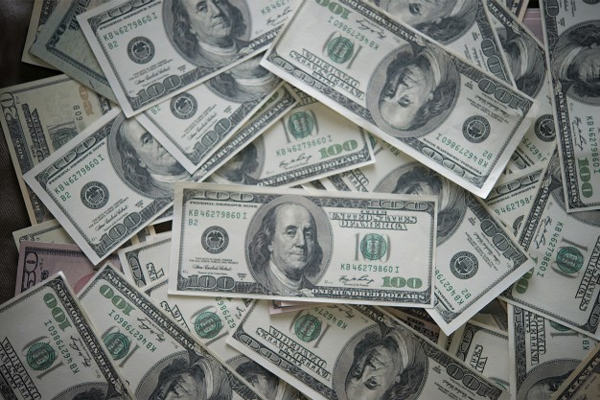
The New Great Depression: If you’re losing money, cash is the opposite.
The Feds could take the balance sheets of $10 trillion. There’s no legal limit but there is a psychological limit. There comes a time when people wake up every day and say, “I’m not a PhD. I don’t get it but get me out of here. Get me out of the dollar. Get me into gold and silver land, real estate, fine art, natural resources, water, ag, something, anything other than the dollar where I know I can preserve wealth and possibly make money.” When that happens, the whole house of cards collapses but you want to be in like Hugo Stinnes. You don’t want to wait for hyperinflation. You want to do it first, be ahead of the curve, and the way to do it is now.
I have one more question for you and then I know you have to go because you’re on this blitz of interviews. Did anything surprise you? What were maybe 1 or 2 things that stand out that surprised you in 2020 based on what happened?
I would say that nothing happened that I didn’t anticipate, but it happened faster than I thought. It’s the tempo of things. Even my wife, we talk about things over dinner or whatever. I told her a couple of years ago, “Do you know what this is going to come to? I know what the left-wing is doing. You’ve got to see the right-wing with open carry, which is legal, except in DC. Surround the Capitol.” I didn’t say storm the Capitol but I said, “What if one million people from Pennsylvania, Wisconsin or whatever showed up with shotguns and ARs over their shoulders, which could be illegal assembly and they looked like they were going to storm the Capitol?” They did storm the Capitol. I always hope I’m wrong but my track record is pretty good at getting these things right. If you asked me what surprised me, I would say the tempo was faster than I thought.
Jim, it has been awesome. We could probably keep going but I know a lot of this is in your book. Any final words before we sign off?
I hope people buy the book and I hope you enjoyed it. I’ll let people enjoy it. I love the feedback but again, it’s a lot of grit in terms of bad news but there is some very concrete, optimistic investment advice at the end. Even in tough circumstances, you can at least preserve wealth, if not make money. Hopefully, the book will show you. I always tell people, “Maybe you can’t solve all the problems in the world but if you can shine a light on it, it’s a source of comfort for people.” I hope that’s the case.
I think that there still remains a significant amount of ignorance out there as it relates to some of the underlying activities of government and central banks. People aren’t taught those principles and it’s evident. Hopefully, there is enough contingency to make an impact. Anyway, thank you for what you do because I know you’re trying to get the word out there and shine that light. Best of luck with your book launch. We’re going to do our best to get the word out.
Thanks.
Important Links:
- Jim Rickards
- Currency Wars
- The Road to Ruin
- The Big Drop
- The New Case for Gold
- Aftermath
- The New Great Depression: Winners and Losers in a Post
- Pandemic World
- Barnes & Noble – The New Great Depression: Winners and Losers in a Post Pandemic World
About Jim Rickards
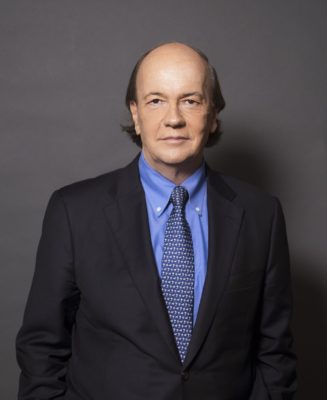 Jim Rickards is Editor of the Strategic Intelligence newsletter, bestselling author of Aftermath: Seven Secrets of Wealth Preservation in the Coming Chaos, Currency Wars: The Making of the Next Global Crisis, The Death of Money: The Coming Collapse of the International Monetary System, The New Case for Gold, The Road to Ruin: The Global Elites’ Secret Plan for the Next Financial Crisis, and the new books The New Great Depression: Winners and Losers in a Post-Pandemic World and The Ravens: How to prepare for and profit from the turbulent times ahead, which was co-authored with Robert Kiyosaki.
Jim Rickards is Editor of the Strategic Intelligence newsletter, bestselling author of Aftermath: Seven Secrets of Wealth Preservation in the Coming Chaos, Currency Wars: The Making of the Next Global Crisis, The Death of Money: The Coming Collapse of the International Monetary System, The New Case for Gold, The Road to Ruin: The Global Elites’ Secret Plan for the Next Financial Crisis, and the new books The New Great Depression: Winners and Losers in a Post-Pandemic World and The Ravens: How to prepare for and profit from the turbulent times ahead, which was co-authored with Robert Kiyosaki.
Love the show? Subscribe, rate, review, and share!


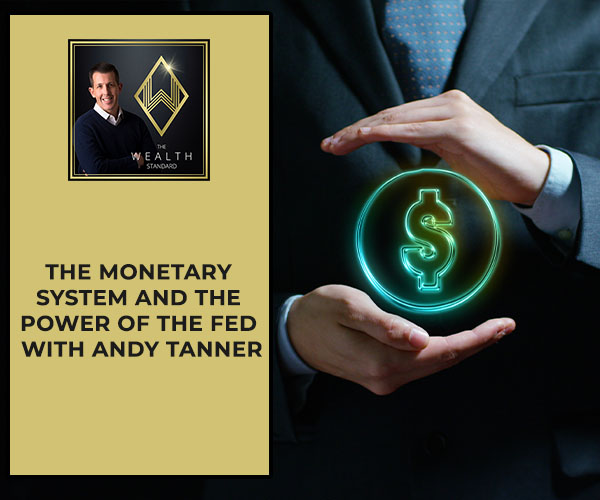
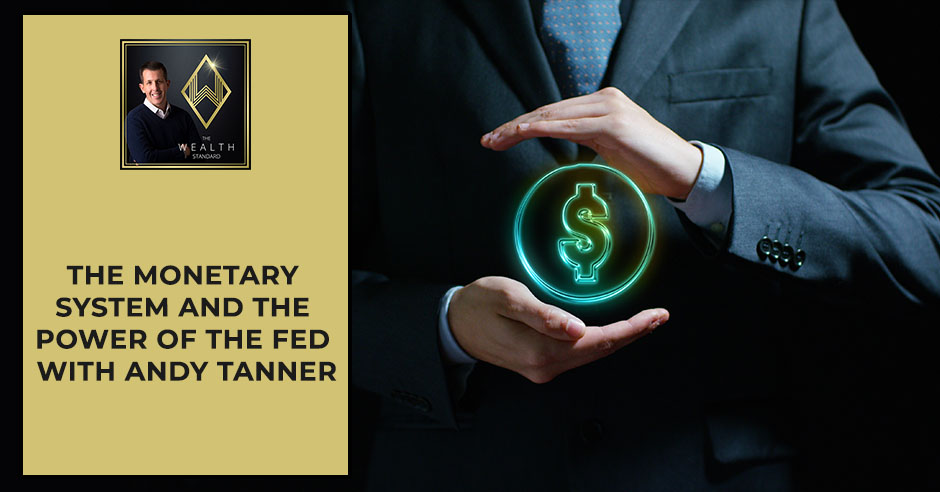



 Andy is a renowned paper assets expert and successful business owner and investor known for his ability to teach key techniques for stock options investing. He serves as a coach to Rich Dad’s Stock Success System trainers and as the Rich Dad Advisor for Paper Assets.
Andy is a renowned paper assets expert and successful business owner and investor known for his ability to teach key techniques for stock options investing. He serves as a coach to Rich Dad’s Stock Success System trainers and as the Rich Dad Advisor for Paper Assets.